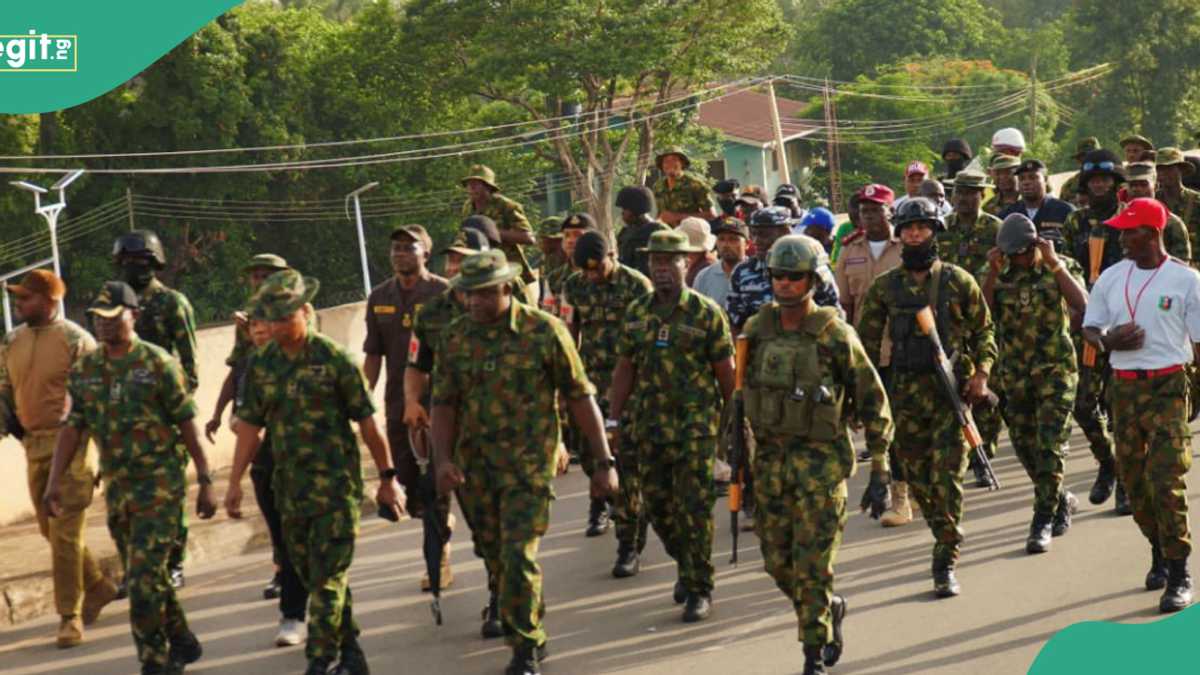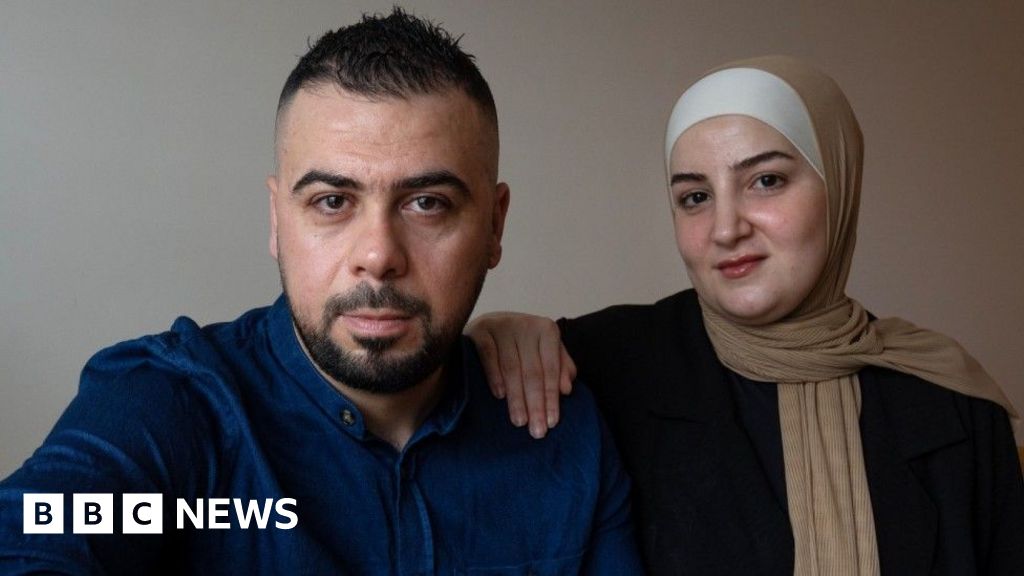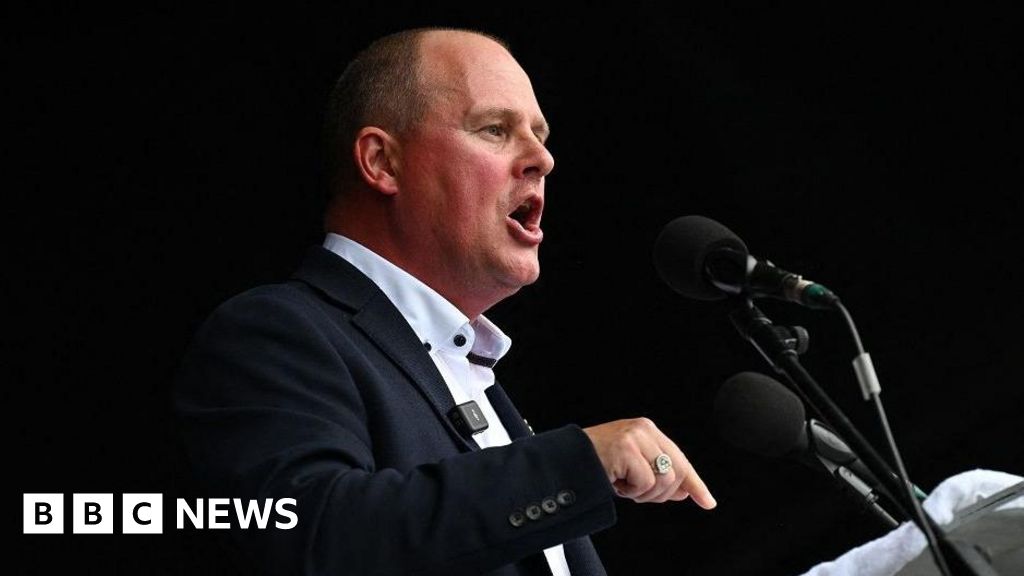Nigeria’s National Assembly, comprising the Senate and the House of Representatives, recorded a flurry of significant events during the year. The two chambers resumed from the Christmas/New Year holiday on 30 January 2024 and sat through 19 December except on a few occasions they were on recess. Some of the activities are:
1. Budget padding controversy
On 12 March, the Senate suspended Bauchi Central senator Abdul Ningi for three months for alleging that the 2024 budget was padded with about N3 trillion.
The suspension followed a point of order raised by the Chairman of the Senate Committee on Appropriations, Adeola Olamilekan, during the plenary.
Mr Olamilekan (APC, Ogun West) complained that his privileges as chairman of the committee that scrutinised the budget, had been breached by the allegation.
However, Mr Ningi, a member of the opposition Peoples Democratic Party (PDP) was recalled after spending two months and 16 days on suspension.
The Senate resolved to recall Mr Ningi on 28 May after adopting a motion sponsored by the Minority Leader, Abba Moro, who apologised on his behalf.
Nigerians need credible journalism. Help us report it.
Support journalism driven by facts, created by Nigerians for Nigerians. Our thorough, researched reporting relies on the support of readers like you.
Help us maintain free and accessible news for all with a small donation.
Every contribution guarantees that we can keep delivering important stories —no paywalls, just quality journalism.
While on suspension, Mr Ningi was not only removed as the chairman of the Senate Committee on Population, he lost his position as the Chairperson of the Northern Senators Forum (NSF). He was replaced with Abdulaziz Yar’adua, Katsina Central senator.
2. Ndume’s demotion for criticising Tinubu
Borno South senator, Ali Ndume, was removed as Senate Chief Whip on 17 July, following a letter from Abdullahi Ganduje, the APC national chairman, and Basiru Ajibola, the party’s national secretary.
In the letter, the APC leaders referenced an interview Mr Ndume granted in which he criticised the Tinubu administration. The party leaders consequently recommended that the Senate relieve Mr Ndume of his position.
 Senator Ali Ndume (PHOTO CREDIT: Official Facebook @Sen. Muhammad Ali Ndume]
Senator Ali Ndume (PHOTO CREDIT: Official Facebook @Sen. Muhammad Ali Ndume]The APC also told Mr Ndume he could quit the ruling party rather than criticise the administration of a president who is its member.
Mr Ndume later apologised for his action and promised not to criticise President Tinubu’s administration again.
He was demoted to chair the Senate Committee on Tourism. However, he rejected the committee on the grounds that he has no experience in tourism.
Tahir Monguno, the senator for Borno North Senatorial District, took over immediately as the Whip.
3. Akpabio’s gaffes
Some comments made by the senate president during plenaries during the year were strongly criticised even by state governors.
During plenary on 20 February, Mr Akpabio claimed that state governors received N30 billion each from the federal government to reduce hardships in their respective states.
The claim was controverted by governors who claimed the senate president was playing on the intelligence of Nigerians.
Specifically, Oyo State Governor Seyi Makinde said Mr Akpabio was playing politics with the welfare of Nigerians.
Akwa Ibom Governor Umo Eno also denied receiving the money from the federal government.
Mr Akpabio later apologised to the governors, saying he regretted making the unverified comment.
 Senate President, Godswill Akpabio
Senate President, Godswill AkpabioHe, however, made another gaffe when he misinformed Nigerians about legislative activities in the upper chamber during the Sixth and Seventh Assemblies of the Senate led by David Mark.
Mr Mark, a retired army brigadier-general, served as the senate president between 2007 and 2015 under the Peoples Democratic Party (PDP). He was a five-term Benue South senator from 1999 to 2019.
During the plenary on 11 July, Mr Akpabio said the official time for plenaries under Mr Mark’s leadership as senate president was from 2 p.m. to 5 p.m. to make the timing convenient for the lawmakers.
PREMIUM TIMES however fact-checked Mr Akpabio’s claim with official documentary records and human sources and discovered that the senate president lied about the timing.
A few weeks after the misinformation, Mr Akpabio, during the plenary, also told the Kogi Central senator, Natasha Akpoti-Uduaghan, not to turn the Senate into a nightclub where people talk anyhow.
Apart from Mrs Akpoti-Uduaghan, the senate president, during another plenary session in the same month, also attempted to silence Ireti Kingibe (LP, FCT), who raised a motion seeking to provide basic amenities for fire victims in Karu market, Abuja.
Nigerians on social media criticised the senate president for the statements, saying he was deliberately denigrating the few women in the Senate.
Later, Mr Akpabio apologised for his comment and said he did not intentionally degrade the female senators as was being suggested on social media.
4. Reshuffling of committees
The Senate effected a minor reshuffling of its standing committees in July, following the removal of Mr Ndume and elevation of Mr Monguno to the position of chief whip,
Apart from being the whip, Mr Monguno was also appointed as deputy chairman of the appropriations committee.
Adeniyi Adegbomire (APC, Ondo Central), a SAN, was appointed as chairperson of the Senate Committee on Judiciary, Human Rights and Legal Matters. He replaced Mr Monguno in that position.
Ned Nwoko (PDP, Delta North) was named the chairman of the Committee on Reparation and Repatriation while Musa Mustapha (APC, Yobe East) was appointed as chairman of the Committee on Livestock Development.
Simon Lalong (APC, Plateau South) became the chairman of the Senate Committee on Agricultural Institutions, while Mr Ningi (PDP, Bauchi Central) was reinstated as chairman of the Committee on Population.
There was also a minor reshuffling of standing committee members at the House of Representatives.
![House of Representatives, Federal Republic of Nigeria]](https://i0.wp.com/media.premiumtimesng.com/wp-content/files/2024/06/436500000_843690531123630_5006160930130032553_n.jpg?resize=1280%2C912&ssl=1) The Speaker of the 10th Assembly, Tajudeen Abbas. [PHOTO CREDIT: House of Representatives, Federal Republic of Nigeria]
The Speaker of the 10th Assembly, Tajudeen Abbas. [PHOTO CREDIT: House of Representatives, Federal Republic of Nigeria]
Oluwole Oke (PDP, Osun) replaced Mr Jibrin as the chairman of the committee on foreign affairs. Mr Oke was initially the chairman of the committee on judiciary.
Aminu Balele, initially the chairman of the Committee on Housing and Habitat, was named the chairman of the Committee on the Army.
Abdullah Mamuda was appointed to fill the vacancy in the Committee on Judiciary. Before this reshuffle, Mr Mamuda was the chairman of the Committee on the Army.
5. NASS loses five members
Four federal lawmakers died this year — three in the House of Representatives and one in the Senate.
The lawmakers who died in 2024 were Ekene Adams, Musliudeen Akinremi, Isa Dogonyaro and Ifeanyi Ubah, a senator.
 Senator Ifeanyi Ubah
Senator Ifeanyi UbahMr Adams died on 16 July at the age of 39 after battling illness. He represented the Chikun/Kajuru Federal Constituency of Kaduna State on the platform of the Labour Party. Until his demise, Mr Adams was the chairman of the House Committee on Sports.
Mr Akinremi, a two-term member of the House, who represented Ibadan North Federal Constituency of Oyo State, died in July.
Mr Akinremi, popularly called Jagaban, died at 51. He served as the chairman of the House Committee on Science Research Institutions.
Mr Dogonyaro died on 10 May in Abuja after undisclosed illness. He represented Garki/Babura Federal constituency of Jigawa State under the platform of the All Progressives Congress (APC).
Until his death, Mr Dogonyaro was the deputy chairperson of the House Committee on HIV/AIDS, Tuberculosis and Malaria Control.
Mr Ubah died on 27July in a hospital in London, United Kingdom after a brief illness. He represented Anambra South Senatorial District.
Mr Ubah was the chief executive officer of Capital Oil and until his death, he was the Chairman of the Senate Committee on Petroleum Downstream.
He would have been 53 on 3 September.
6. N70,000 new minimum wage bill
In July, the two chambers of the National Assembly passed the new National Minimum Wage Bill to pay Nigerian workers at least N70,000 monthly.
The executive bill seeks to amend the minimum wage from N30,000 to N70,000 and reduce the review period from five years to three years.
The Senate intervened in the course of the negotiations between the executive arm and organised labour.
After the passage, President Tinubu gave assent to it and many states have already commenced the payment of the new minimum wage.
7. Constitution review
In February, Mr Akpabio inaugurated a 47-member constitution review committee of the Senate.
The House also inaugurated its own committee to review the constitution.
 The Senate President, Godswill Akpabio
The Senate President, Godswill AkpabioDuring the inauguration, the senate president explained that the 1999 constitution contains many issues that should be “put right.”
The Senate’s constitution review committee, chaired by the Deputy Senate President, Barau Jibrin, pledged to conclude the exercise in 2026.
Recently, the Senate Leader, Opeyemi Bamidele, said the committee received 37 memoranda from civil society organisations (CSOs) and other members of the public.
8. The subtle seniority battle over national award
President Tinubu, in his Independence Day broadcast, announced the conferment of national honours on five senior government officials.
They are Messrs Akpabio and Abbas. Others are the Deputy Senate President, Barau Jibrin, Deputy Speaker Benjamin Kalu and Chief Justice of Nigeria (CJN) Kudirat Kekere-Ekun.
Messrs Akpabio and the CJN were awarded the Grand Commander of the Order of the Niger (GCON), while Messrs Tajudeen and Jibrin were conferred with the Commander of the Order of the Federal Republic (CFR).
Mr Kalu was awarded the Commander of the Order of the Niger (CON).
During the plenary which happened a day after the announcement, some members of the House of Representatives rejected the CFR award conferred on the speaker.
They specifically demanded that President Tinubu confer the GCON award on Mr Abbas, arguing that both are “first among equals.”
Philip Agbese (APC, Benue) moved a motion for the rejection of the award and all the House members unanimously supported it.
Two days later, President Tinubu reconsidered his decision and conferred the GCON award on the House Speaker.
9. Tax reform controversy
The tax reform bills have faced criticisms from some Nigerians, with the most prominent being that it disfavours Northern Nigeria.
The bills are the Nigeria Tax Bill 2024, the Tax Administration Bill, the Nigeria Revenue Service Establishment Bill, and the Joint Revenue Board Establishment Bill.
Mr Ndume, the Borno senator, is a major critic of the bills.
While the bills have passed the second reading in the Senate and referred to the committee on finance, they are yet to be debated at the House of Representatives.
To address the concerns in the bills, the Senate constituted a committee to liaise with a delegation of the federal government led by the Minister of Justice and Attorney General of the Federation, Lateef Fagbemi.
The panel is chaired by the Minority Leader, Abba Moro.
The two parties were supposed to resolve the grey areas but they are yet to do so.
Senators from the South-east have said they are not against the bills but they needed to consult with their governors and other stakeholders in the region.
South-south senators warned people opposed to the tax reform bills not to introduce regional, ethnic or tribal sentiments when criticising the bills.
The senate president has, however, assured that the National Assembly would do everything it can to ensure passage of the tax reform bills.
10. Tinubu, twice guest of NASS
During the year, President Tinubu visited the National Assembly twice.
His first visit was on 29 May to commemorate Nigeria’s 64th anniversary during which he addressed the lawmakers at a joint session.
Mr Tinubu urged the lawmakers to be united and see themselves as brothers and sisters despite the political, ethnic and religious differences.
The president also commissioned a library named after him.
 President Bola Ahmed Tinubu presenting the proposal for the ‘2025 Budget of Restoration [PHOTO CREDIT: X]
President Bola Ahmed Tinubu presenting the proposal for the ‘2025 Budget of Restoration [PHOTO CREDIT: X]
The budget was also presented to a joint session of the National Assembly.
11. New clerk for National Assembly and Senate
In November, the National Assembly Service Commission (NASC) approved the appointment of Kamoru Ogunlana as Clerk to the National Assembly following the retirement of Sani Tambuwal.
The Chairman of the Commission, Ahmed Amshi, said Mr Ogunlana’s appointment will take effect from 2 February 2025.
While Mr Ogunlana has yet to assume office, Mr Tambawal is on three months of compulsory retirement leave to mark the end of his tenure.
The commission also named Andrew Nwoba as the new clerk for the Senate.
Projections for 2025
1. Constitution review progress
In the coming year, the constitution review committees of the Senate and the House of Representatives will continue with the exercise. They are expected to conduct public hearings across all the geopolitical zones of the country.
Like in the past, the hearings will involve political elites, traditional rulers, student representatives and other stakeholders.
2. Tax reform saga
There is a high probability that the tax reform bills would be passed by both chambers.
The Senate liaison committee is expected to meet with the federal government team led by AGF Fagbemi upon the resumption of plenary in January.
There may be a joint public hearing on the tax bills, which will involve governors, traditional rulers and other stakeholders across the country.
3. Budget defence
Upon resumption of the National Assembly in January, the Ministries, Departments and Agencies (MDAs) of the federal government will commence the defence of their allocations in the 2025 budget presented by President Tinubu on 18 December.
The budget defence might last for at least two weeks. Afterwards, a final collation will be made at a joint sitting of appropriation committees of both chambers.
The National Assembly may pass the budget early in the new year.
READ ALSO: ‘Remember accountability and responsibility…,’ Imam tells Tinubu at Jumat
North-west, South-south to come on stream
The North Central Development Commission and South-south Development Commission bills, which are at the second reading stage, will be passed.
Meanwhile, there is a criticism that the SSDC is a duplicate of the Niger Delta Development Commission (NDDC), which comprises the six South-south states, two South-east states and one South-west state.
Support PREMIUM TIMES' journalism of integrity and credibility
At Premium Times, we firmly believe in the importance of high-quality journalism. Recognizing that not everyone can afford costly news subscriptions, we are dedicated to delivering meticulously researched, fact-checked news that remains freely accessible to all.
Whether you turn to Premium Times for daily updates, in-depth investigations into pressing national issues, or entertaining trending stories, we value your readership.
It’s essential to acknowledge that news production incurs expenses, and we take pride in never placing our stories behind a prohibitive paywall.
Would you consider supporting us with a modest contribution on a monthly basis to help maintain our commitment to free, accessible news?
TEXT AD: Call Willie - +2348098788999

















 English (US) ·
English (US) ·